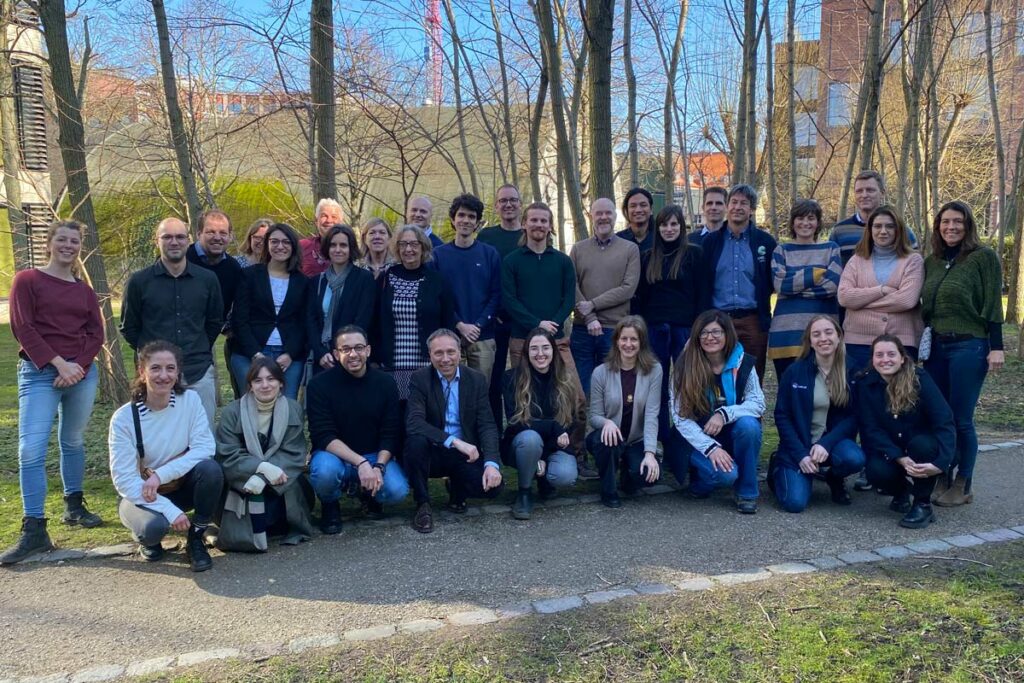The INTERCEDE project works on enhancing forest ecosystem service provision in Europe through the development of novel policies and instruments targeted to support forest owners.
A new Horizon Europe project targets the potential of market-based approaches as incentives for forest owners to manage their forests to provide valuable benefits and services to society. Forest ecosystem services (FES), such as carbon removal, biodiversity protection, improved water management, and recreational services, are widely desired if not considered essential, yet they are not necessarily valued, particularly not in monetary terms.
The INTERCEDE project (Incentivizing future forest ecosystem services and incomes in Europe), which kicked off in March 2024, aims to enhance the value of Europe’s forests to Europe’s citizens by identifying and upscaling market-based instruments, developing policy frameworks and guidelines, and reducing the gap between high-level research and policy and practice.
INTERCEDE INNOVATION
INTERCEDE is breaking new ground by examining future supply and demand for FES and looking for effective Market-Based Instruments (MBI) that offer forest and land managers viable options to manage forests to provide these services. Schemes will be evaluated to find those that are adaptable and scalable, and novel and innovative models will be developed based on identified needs and opportunities. Measures that work will be widely shared, with forest owners, forest businesses and policy makers, as well as with a wider pool of sectors and society who will benefit from improved knowledge and implementation of such schemes.
The project, which has received EUR 6 million from the European Union under the Horizon Europe Research and Innovation Program, has a consortium of 13 project partners including small and medium-sized enterprises, landowners, and environmental organizations, The project, which has received EUR 6 million from the European Union under the Horizon Europe Research and Innovation Program, has a consortium of 13 project partners including small and medium-sized enterprises, landowner and environmental organizations, and researchers with skills in modelling, valuing FES, economic instrument design, governance, and policy analysis.

At its heart, the project hosts a transdisciplinary forum that connects research with policy and practice, as it connects project partners with the people who will use and benefit from the project’s results. Policy recommendations on existing and potential schemes will provide decision makers with science-based guidance at national and EU-wide scales. A service to support start-ups and existing businesses to implement designs and business models will boost the development, outcomes and impacts of promising interventions and enable new MBIs to take flight. Future scenario modelling, rigorous impact assessment of current schemes and upscaling and replication of proven success cases underpin the multi-faceted approach to enhancing FES provision across Europe.
The Forest Science and Technology Centre of Catalonia (CTFC) will lead the mapping of examples of these innovative instruments at the European level. The research team will extract examples from the database to analyze them in detail through political science, or impact assessment perspectives. The team will also review how the measures of the Rural Development Plans act as an incentive for the improvement of ecosystem services.
If successful at the European scale it targets, the project has the potential to make a positive impact on forest owners’ income, enabling them to provide the care required for our forests to continue to provide goods and services to all of us who want and need them. Furthermore, the market-based benefits, that will fall on forest owners and actors involved on the supply side of these services, will also benefit the millions of citizens who enjoy these FES directly or indirectly and often also fund their provision in various ways. INTERCEDE is just beginning its journey to improve the outlook for FES in Europe. And in the current climate, this intervention comes not a moment too soon.
The INTERCEDE project is funded by the European Union under grant number 101135159 and runs for four years, from March 2024 – February 2028. Views and opinions expressed are however those of the author(s) only and do not necessarily reflect those of the European Union or the European Research Executive Agency. Neither the European Union nor the granting authority can be held responsible for them.
Last modified: 15 March 2024










